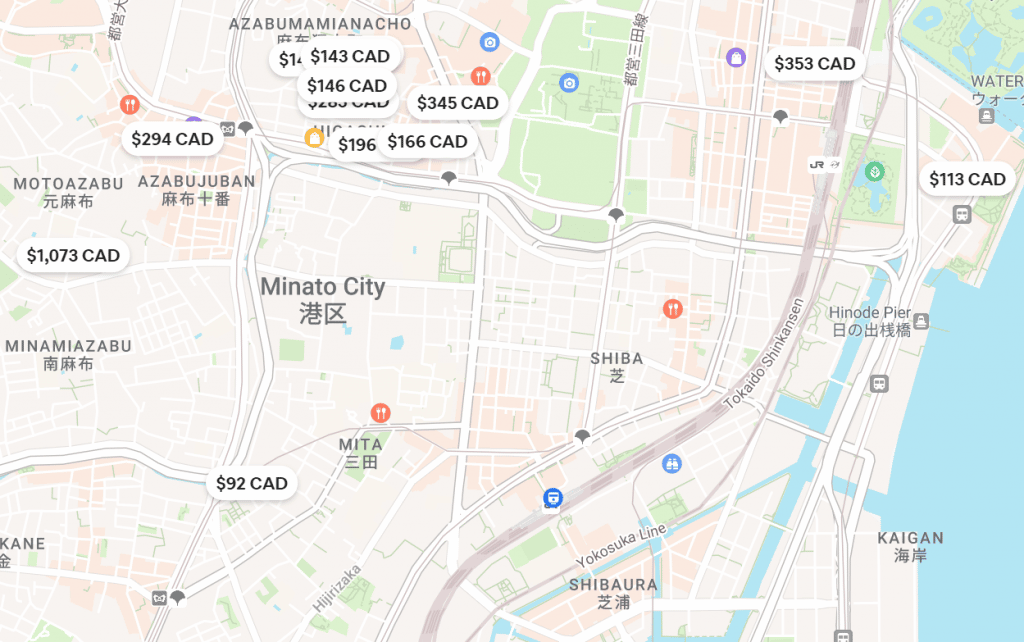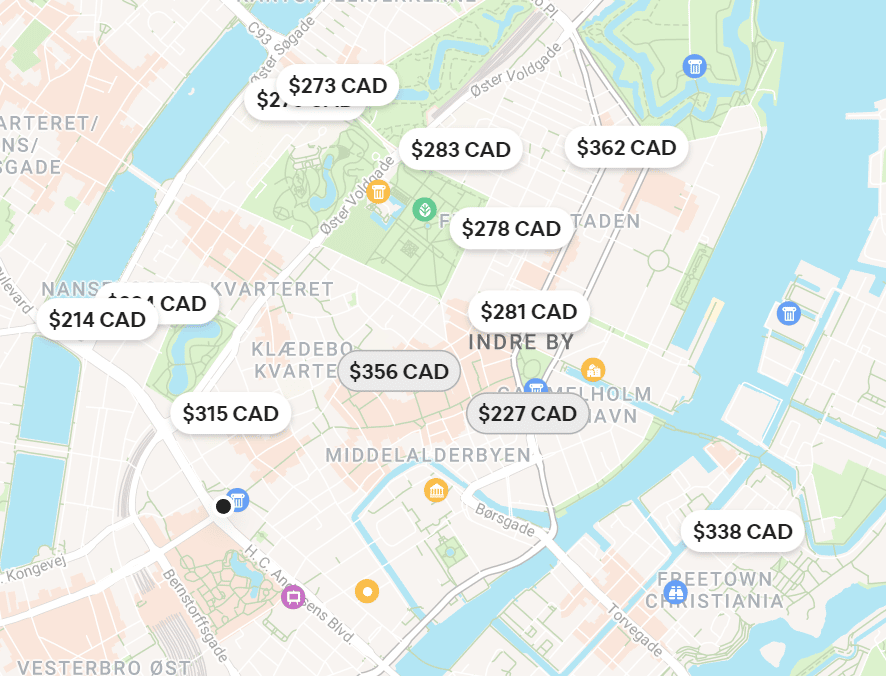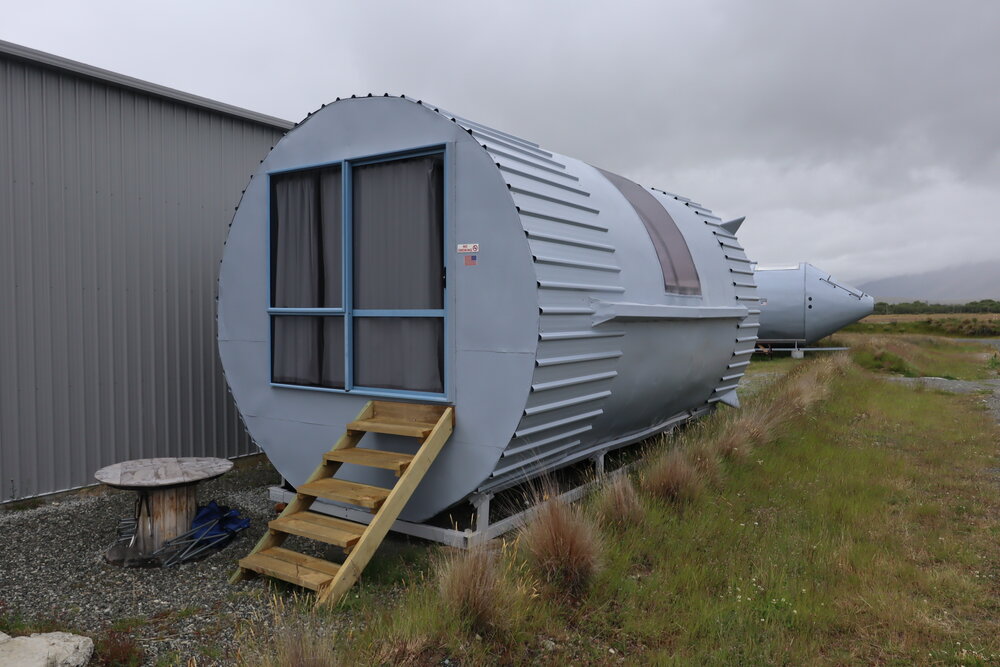Let’s face it: the modern accommodation market is saturated with options.
There is a wide array of hotels and short-term vacation rentals, most famously personified by Airbnb, vying for your hard-earned dollars. It can often be difficult to determine where exactly you want to stay, and it can be even harder to ensure that your lodgings give you the precise experience you’re looking for.
Let’s look – warts and all – at the advantages and disadvantages of booking hotels or short-term rentals. While we’ll be mostly looking at the value proposition, we’ll be sure to include other considerations, such as access to amenities, loyalty (or lack thereof), an the overall experience.
Cost
To initiate our tête-à-tête, let’s look at prices of a range of hotels versus those of short-term rentals in three major world metropolises for a week in August. A six-night booking seems perfectly reasonable for the tail-end of the summer travel frenzy, and we’ve included some of the neatest locations for would-be Canadian summer vacationers.
First, we go to the ever-popular downtown of the immortal Tokyo, Japan. Since reopening last year, it’s no secret that Japan has experienced an enormous bump in tourism, and so it wouldn’t be surprising to see elevated prices when looking at Marriott properties.

As we can see when we examine Minato City and its environs, which lie in the heart of Tokyo and just to the south of the famous Imperial Palace, the lowest-priced Marriott costs a whopping ¥22,546 ($225 CAD) per night. Ouch.
In the mid-tier range, we see other hotels for $380–680 (CAD), but many of the nicest properties only have rooms available for eye-watering prices well in excess of $1,000 (CAD).
On the flipside, even in the centre of Tokyo, options with Airbnb are generally much cheaper.

While there is only one Airbnb located next to Mita and Shinagawa, there are plenty in and around the hotel cluster by the Hie Shrine. The prices are much lower, hovering around $150–400 (CAD), which is very low compared to what we saw with Marriott hotels.
Based purely on pricing, Airbnb is a winner in this specific comparison.
Of course, one should remember that this is Japan, and it’s very possible to opt for barebones accommodations, such as pod hotels, for much less.
If you’re alright with foregoing any semblance of privacy to save a few dollars, then this may be an acceptable option; however, for couples and families, having even a modicum of private space is likely going to be a must-have instead of a nice-to-have.
But what about hotels in other cities? Perhaps it’s also better to look at every hotel that’s available, instead of just with a major chain such as Marriott.
Let’s look at Copenhagen, a hip city filled with world-famous restaurants, and see how its local Hotels.com competitors stack up against their Airbnb rivals.

Most hotels downtown price in the mid-$200 (CAD) range, with a few going much further north and only a single option below $200 (CAD) per night.
On the other hand, Airbnb seems to be charging approximately the same amount.

Leave it up to Scandinavia, but this is a situation where one might be harder pressed to shop around and find a better deal. You’re not really saving a tidy sum of cash by booking with hotels or short-term rentals, so in this case, you’d want to weigh out the amenities.
For example, a cheaper room with two twin beds might not be ideal for a family with children who needs a bit more space. On the other hand, it could be perfectly fine for a solo traveller or a couple of friends exploring the city.
And next, let’s compare the cost of booking Hilton-branded hotels in Downtown Montreal…

With the cost of booking Airbnbs in Downtown Montreal…

While Airbnb cannot be considered an absolute bargain compared to Hiltons in the same part of town, almost everything it offers here is consistently $50–100 less than the hotel chain. That adds up fast when planning a vacation or working holiday for a week at a time!
One thing that also bears noting is that while hotels and short-term rentals have long-term stay rates, the latter tends to grant far better rates.
Moreover, long-term stay rates at hotels are set by management, while short-term rentals are generally run by private contractors who may be much more amenable to cutting you a personalized deal if you intend on being a decent longer-term guest.
Verdict: Generally speaking, Airbnbs, and likely short-term rentals in general, cost less than hotels. If you’re just looking to save money on accommodation, then you’re more likely to come out ahead by avoiding hotels.
Indeed, you’ll almost always be able to find something you’re comfortable with at a price you can tolerate, especially if you look outside of city centres. This doesn’t mean there’s no room for hotels, or that every short-term rental is priced fairly, but it does mean many are cheaper than their more formalized counterparts.
However, as the demonstration from Copenhagen shows, your mileage may vary. In some cities, a booking platform such as Hotels.com may have cheaper overall locations, but the rooms you’re likely to find have much barer bones than the full apartments (replete with amenities, which we’ll get into later) that are typically listed on short-term rental sites.
However, when it comes to comparing the cost of larger loyalty-branded hotel chains to short-term rentals, the latter wins.
Amenities
When comparing hotels to the crowdsourced short-term rental options, another common point of contention is the question of amenities, which includes a combination of facilities and additional services. Don’t worry, travellers with elite status, we’ll get to your desires in a little bit!
Most full-service hotels have a suite of products catered to their on-the-move business customers who are more concerned with having convenient services at their immediate disposal rather than enjoying their locale. One can expect these locations to boast fitness centres, laundry services, room service, restaurants, bars, business centres, and even a swimming pool or spa.
This all comes in addition to the convenience of having 24/7 hotel staff to quickly address any issues that come up during a stay.

When it comes to dining, many hotels will also have restaurants (even if these businesses run at a slight loss) to provide their guests with added convenience. Really plush hotels can even attract celebrity chefs to further burnish their branding.
If a Michelin star dining experience is important to you, such a culinary delight probably won’t be located on the ground floor of a short-term rental.
Conversely, the argument could be made that there’s no home like a home away from home – why eat fancy when you can cook for yourself? Why pay for exorbitant laundry services when you can wash and iron your own garments for much less?

Of course, there are some cities, such as Seoul, where cooking groceries may have a similar cost to eating out. Why spend time cooking when you can enjoy tasty street food for the same price or less?
However, one cannot argue that these are often more economic pursuits. Short-term rentals give you the freedom to choose when and how to deal with your own problems, rather than oblige you to pay $5 to launder a shirt, which is the going price at many higher-end hotels.
Verdict: In the end, the type of amenities that are important to you will differ, depending on the purpose of your trip. In this case, let’s call it a tie, as what’s important to a business traveller may not be an issue for someone travelling for leisure.
For some, the experience of walking into a turn-key home is better serviced by the insane plethora of options from short-term rentals. You’ll also likely wind up saving cash on things like food and laundry, which you can take care of yourself.
On the other hand, staying at a “one-stop shop” that can fit all your needs without ever setting foot outside is best provided by hotels. If you’re too preoccupied to cook or look after chores, then you won’t have to go far to have your needs met, even if it comes at a cost.
While there are some hotel options that also feature full kitchens and laundry facilities, you’ll often wind up paying a premium, and also won’t enjoy the full suite of perks that come with staying at a full-service hotel.
Loyalty
Spoiler alert: hotels beat short-term rentals hands-down when it comes to the loyalty game.
There are no real incentives to continuously book short-term rentals other than price and the opportunity to live like (or with) a local in a given city.
On the other hand, hotels offer incredible benefits for repeat customers, such as welcome amenities, complimentary upgrades, free food and drinks, and even gifts, on top of earning points for free stays. In the hotel loyalty scene, it’s the usual suspects Marriott Bonvoy, Hilton Honors, and World of Hyatt that offer the pest perks.
Dedicated elite service desks and priority customer service lines exist for frequent hotel users, but there’s no equivalent for those who spend huge amounts of money at Airbnb or other short-term rentals.

There’s also the option of earning free stays with hotels, since you’re rewarded with points that you can use in the future. These programs permit you to book future stays based on your past dedication to a given brand, and encourage loyalty by rewarding you for coming back.
On the other hand, Airbnb and other short-term rentals don’t offer any kind of reward to put toward future stays, unless you’ve had a negative experience and you earn a credit of some sort. In a sense, the money that you save at a short-term rental could be worth more than loyalty points earned at hotels, but that’s not always the case.
Not feeling particular dedication to a brand? That’s not a problem at all, since you can sign up for a co-branded credit card such as the Marriott Bonvoy American Express Card and start staying for free without ever having set foot in a Marriott hotel!
Verdict: When it comes to loyalty, staying at hotels is a clear winner. Depending on your level of engagement, you can earn perks that include free nights, upgraded rooms, late check-out, free food and drinks, and special recognition.
Here’s hoping that short-term rentals up their game in the future. Right now, they’re even being outmatched by indie-focused Hotels.com, which offers an average of 10% rewards to members who use its service.
Experience
When comparing short-term rentals to hotels, the question is raised of of how you personally wish to live when you’re travelling: do you want to experience a destination purely as a visitor, or try and blend in a bit more with the local norms?
Both are equally legitimate methods of travelling the world, as some prefer to live like the locals while others lean towards being pampered in unfamiliar surroundings.
For example, in Edmonton, the real fun isn’t necessarily located downtown, but on a narrow strip just to the south. While the JW Marriott Edmonton ICE District indisputably offers a world-class experience, it doesn’t have the same ambience or convenience as renting a condominium off Whyte Avenue, if you’re looking to be right in the heart of the action.

There’s also the question of predictability: do you find pleasure in consistency, or do you prefer the excitement of engaging with the sharing economy?
If you want to roll the dice and take a bit of a chance while also saving a little bit of money, or at least not spending more than a similar hotel, try short-term rentals. In some cases, though, pictures can be deceiving, and what you actually wind up with could be a bit of a shock.
You may be treated to a well-maintained character property that exceeds your expectations, or you may also wind up wondering in which decade the photos of your short-term rental were actually taken.
Likewise, if you like meeting new people, then you’re more likely to enjoy getting to know your host and possibly their friends, assuming you get along in the first place. On the other hand, you may wind up with an awkward stay if your personalities don’t jive, which is only an issued with shared spaces.
For an elevated experience, though, you really can’t beat a hotel. Why not celebrate a special occasion by splurging on a fancy room with an incredible view?

Depending on the channel through which you make your booking, you can also leverage pre-built relationships with hotels to really make an experience memorable. This can be done by booking through preferred partner programs or by establishing contacts at hotels yourself, should you be a repeat client.
While you may get a truly stupendous Airbnb or short-term rental host, they’re less likely to go out of their way to “wow” you for your birthday, anniversary, or other special occasion in the same way that a hotel will.
While short-term rentals can offer excellent value, they don’t go the extra mile in providing outstanding service. After all, there’s nothing quite as frustrating as trying to echolocate your host to pick up your keys in an unfamiliar locale.
Verdict: Overall, consistency and dedication to service excellence must rank somewhere in the competitive space of commercial accommodations, and in this case, hotel stays reign supreme.
With more options in the heart of the action, a better chance of getting excellent service, and plenty of room for “wow” factors, if you’re looking for an elevated experience, luxury hotels are where you’ll consistently find it.
Furthermore, if you don’t like surprises, then you can pick and choose your preferred hotel brand and know pretty much exactly what to expect. After all, once you’ve stayed at one Marriott Hotel, you’ve pretty much stayed at them all.
However, this comes at a cost, and if you’re just looking to immerse yourself in a destination, short-term rentals will suit your fancy just fine. There’s also something to be said about the excitement of staying in a part of a new town that’s far away from the well-trodden tourist path.
Conclusion
To wrap up, short-term rentals offer indisputable value on price and flexibility. If you want to save a few dollars and stay far away from a downtown thoroughfare, this is where you can choose to spend your accommodation budget.
Moreover, short-term rentals offer you the opportunity to live a little more akin to locals in whatever place you choose to visit. For families, it can also be easier to find a place to accommodate a large group through short-term rentals rather than hotels.
However, when it comes to the experience of voyaging somewhere new and having your needs taken care of, higher-end, and even some mid-tier hotels, cannot be beaten. You’ll also benefit from consistency, predictability, and having many amenities concentrated in a single building.
As versatile as its options are, short-term rentals just don’t reward their most loyal members, and even the most dedicated Super Host is unlikely to offer you a free bottle of bubbly for that special occasion. You might even get a list of chores to do before checking out, which you certainly won’t have to deal with at a hotel.
Ultimately, you have to spend your money where you feel your travel needs will best be met, instead of trying to chase luxury for its own sake. On the other hand, you might just make yourself miserable by cooking during your trip just to save a few dollars.
Until next time, book with pride.


